Everything You Need to Know About Water Heater Replacement Cost
If you're thinking about replacing your water heater, it's important to know the cost and factors that affect the price. A good hot water system is crucial for your home, but it can be expensive. Whether you choose an electric or gas water heater, learn about the potential cost of upgrading this important appliance in your home.

Determining When to Replace a Water Heater
To maintain a consistent supply of hot water, it's important to replace worn-out water heaters. But how do you know when an upgrade is necessary? Here are some key factors to consider:
Water heaters typically last between 8 to 12 years. If your unit is older than this range, it may be a good idea to consider a replacement.
If you notice signs of corrosion on your water heater tank, it indicates the need for replacement.
While some leaks can be repaired, others may require the entire unit to be replaced.
If you experience a noticeable decrease in hot water supply or find yourself running out of hot water sooner than usual, it may be time to replace your water heater.
It's important to take proactive measures to ensure your home's hot water needs are consistently met. Waiting for your old unit to fail can lead to inconvenient disruptions. By being aware of the signs of an aging or malfunctioning water heater, you can make timely decisions to replace it and ensure reliable hot water for your household.

Factors Affecting the Cost of Water Heater Replacement
The cost of replacing a water heater can vary based on several factors, including:
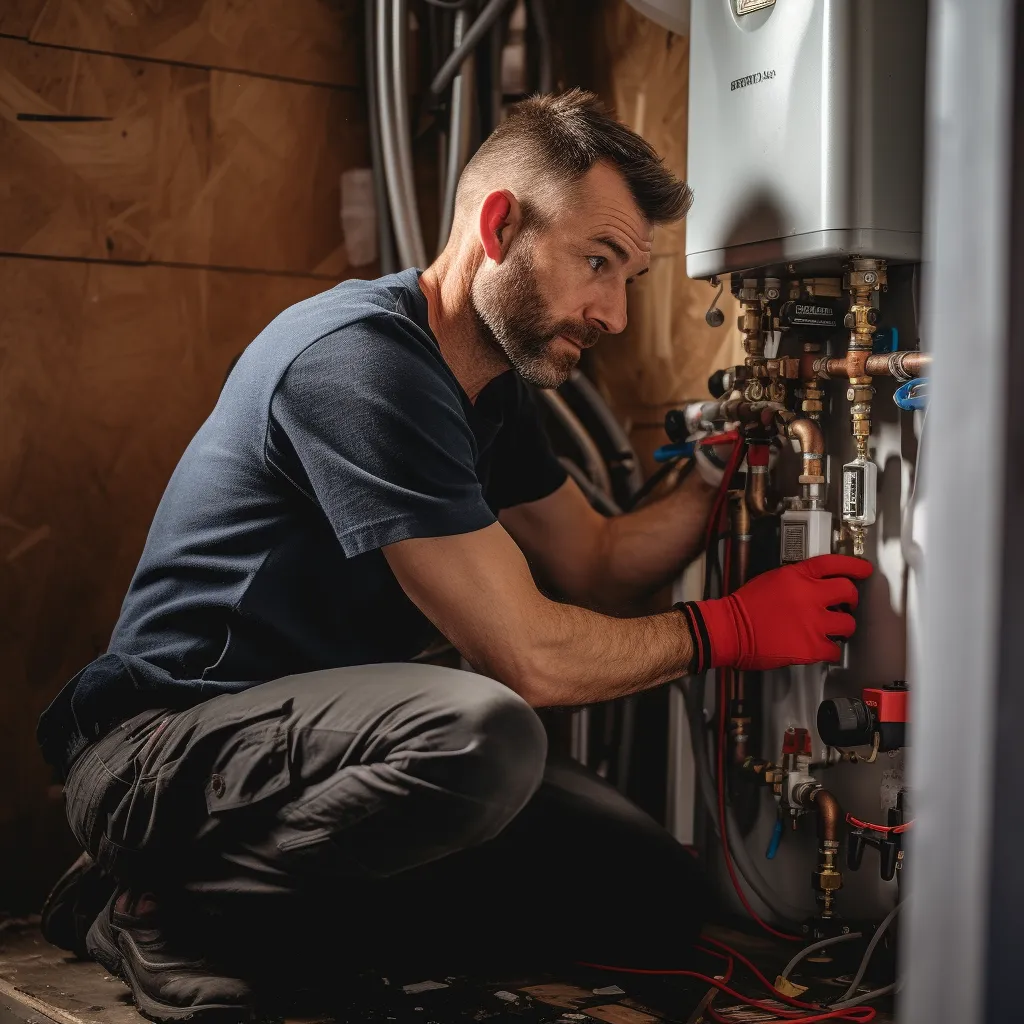
Water heater type: Different types of water heaters, such as tankless, storage tank, or heat pump models, have varying prices based on their size and energy efficiency ratings.
Size of the unit: Larger water heaters generally come with a higher price tag than smaller ones due to the increased capacity.
Extras: Adding extras like automatic shutoff valves or pressure relief valves can increase the overall cost of replacement.
Installation costs: The cost of installation depends on the complexity of the project, any additional materials required, and whether new pipes or venting systems are needed.
Labor costs: Professional plumbers may charge hourly rates or a flat fee for their services, which can impact the overall cost.
Permits: Depending on local building codes, permits may be required for the installation, which can add to the total cost.
Location: The availability of technicians and the cost of living in your area can influence the final price.


Benefits of Upgrading to an Energy-Efficient Water Heater
Replacing an old water heater with an energy-efficient model offers several advantages:
Energy-efficient water heaters can significantly reduce utility bills. Compared to traditional models, they consume approximately half the amount of energy, leading to long-term cost savings.
These water heaters are designed to provide a comfortable and consistent flow of hot water at the desired temperature. They offer improved performance and a better overall experience.
They are built with high-quality components and advanced technology, enhancing their durability and reliability. This means you can enjoy their benefits for an extended period without frequent repairs or replacements.
Energy-efficient models are more eco-friendly, contributing to a reduced carbon footprint. By consuming less energy, they help conserve natural resources and decrease greenhouse gas emissions, making them an environmentally responsible choice.

Calculating the Proper Size of a Water Heater for Your Home
Choosing the right size of water heater is essential to ensure an adequate supply of hot water for your household. Here are some factors to consider when determining the appropriate size:
Household Size: The number of people in your household is a significant factor in determining the size of the water heater. Larger households typically require a bigger water heater to meet the increased demand for hot water.
Fuel Source: The type of fuel used for the water heater can influence your decision. Electric water heaters usually have smaller tanks compared to gas-powered ones, as they heat water more efficiently.
Usage Patterns: Consider your hot water usage patterns. If you anticipate using hot water for multiple purposes simultaneously, such as running the dishwasher or doing laundry while someone is showering, a larger tank may be necessary to ensure a continuous supply.
Climate: If you live in a colder region, it may be advisable to choose a larger water heater to maintain a consistent supply of hot water. Colder climates require more energy to heat the water, and a larger tank can help meet the increased demand.

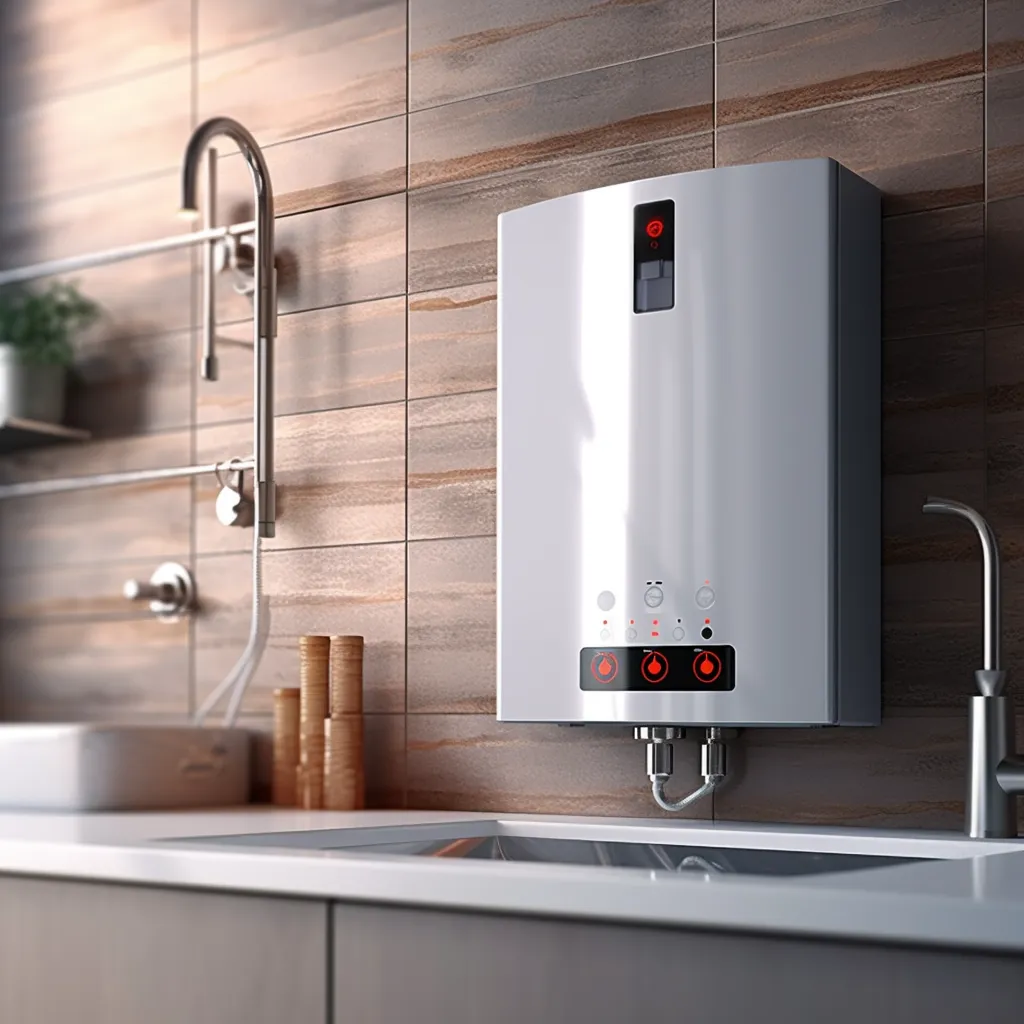
Exploring Different Types of Water Heaters
When selecting a water heater, it's important to explore different options available to find the right fit for your home. Traditional tank water heaters store hot water, while tankless water heaters heat water on demand. Hybrid water heaters combine features of both, while solar water heaters utilize the sun's energy for heating. Heat pump water heaters extract heat from the air or ground for energy efficiency. Understanding these different types of water heaters will help you make an informed decision based on your specific needs and preferences.

Cost Considerations for Different Types of Water Heaters
When it comes to replacing water heaters, cost is a significant factor to consider. The final price depends on the type of unit you choose. Here's an overview of the cost considerations for different water heater types:
Traditional tank heaters These units have a lower upfront cost, making them more affordable initially. However, they tend to have higher energy bills and a shorter lifespan, which can result in additional long-term expenses.
Tankless heaters have a higher upfront cost, but they offer long-term savings through lower energy bills. Their longer lifespan offsets the initial investment.
Heat pump heaters have moderate upfront prices. Although they may have higher initial costs, they can result in significant savings on energy bills over time.
Solar heaters are environmentally friendly and offer long-term cost savings. However, they have a high upfront cost due to the installation of solar panels and associated equipment.
Smart heaters, which allow for remote control and energy-saving features, are relatively new in the market. Their cost varies depending on the brand and features offered.
Condensing heaters Condensing water heaters are highly efficient, but they tend to have a higher price due to their advanced technology and energy-saving capabilities.
When deciding between gas and electric models, it's important to note that gas water heaters generally have a lower upfront cost, while electric water heaters can be more energy-efficient.
Direct vent water heaters are the most affordable option, with prices starting around $500. On the other hand, power vent models are more expensive, ranging between $700 and $1,200.
Cost of installation and ongoing maintenance
for each type of water heater
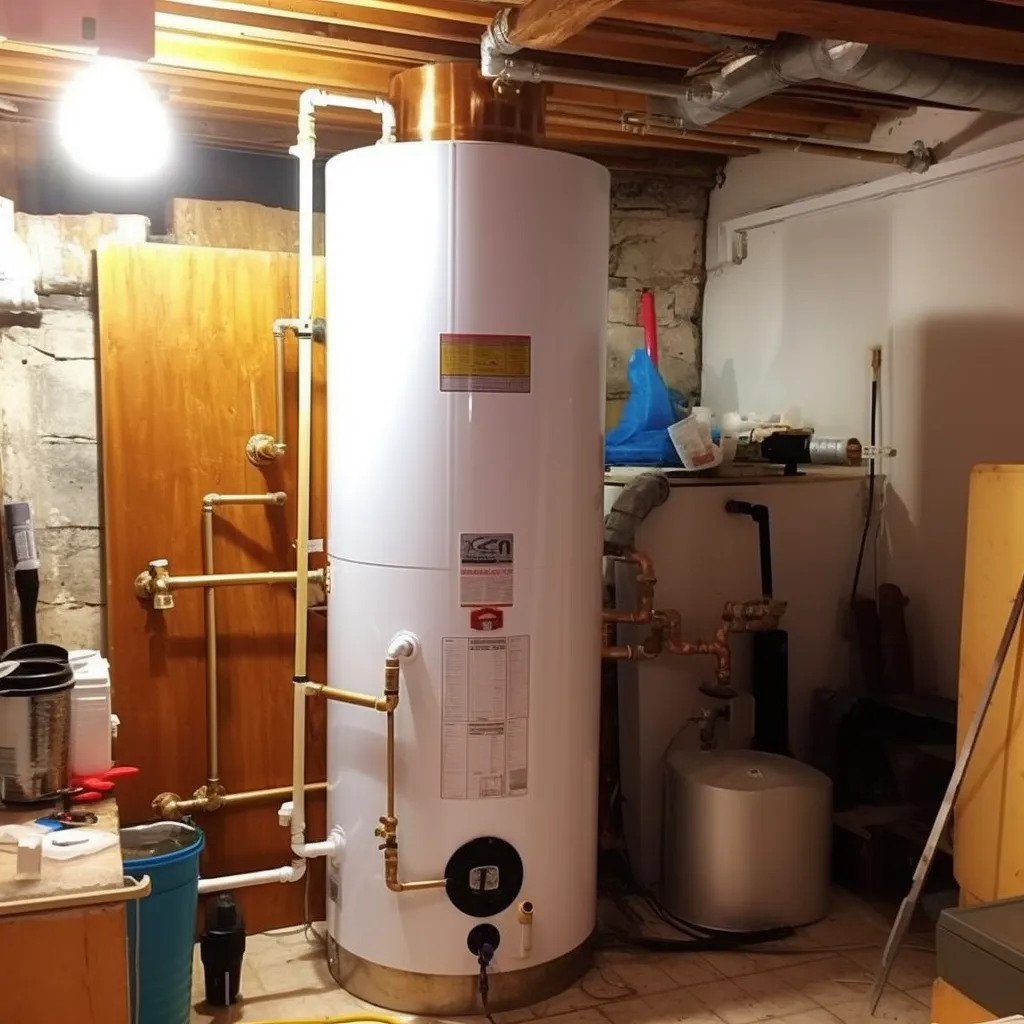
Installation and maintenance costs are crucial factors when choosing a water heater. Traditional tank heaters have low installation costs but higher maintenance expenses. Tankless heaters have higher upfront costs but lower maintenance. Heat pump heaters are moderately priced for installation and maintenance. Solar heaters have high installation costs due to plumbing connections. Consider fuel costs as well, with gas heaters often more cost-effective than electric models. Consulting with a professional plumber will provide accurate cost estimates based on your needs.

Obtaining an Accurate Estimate for Water Heater Cost
Getting an accurate estimate for the total cost of replacing your water heater, including installation, requires some research and effort. Here are some steps to follow:
To begin, determine the appropriate size and type of water heater for your needs. Consider the number of people in your household and how you utilize hot water.
Research local plumbing companies and request quotes for the installation and upgrade of your water heater system.
When considering the cost of a water heater, remember to factor in the price of the unit itself, as well as any applicable warranties or additional features you may require.
Saving Money on a New Water Heater Installation
Consider these money-saving tips when installing a new water heater:
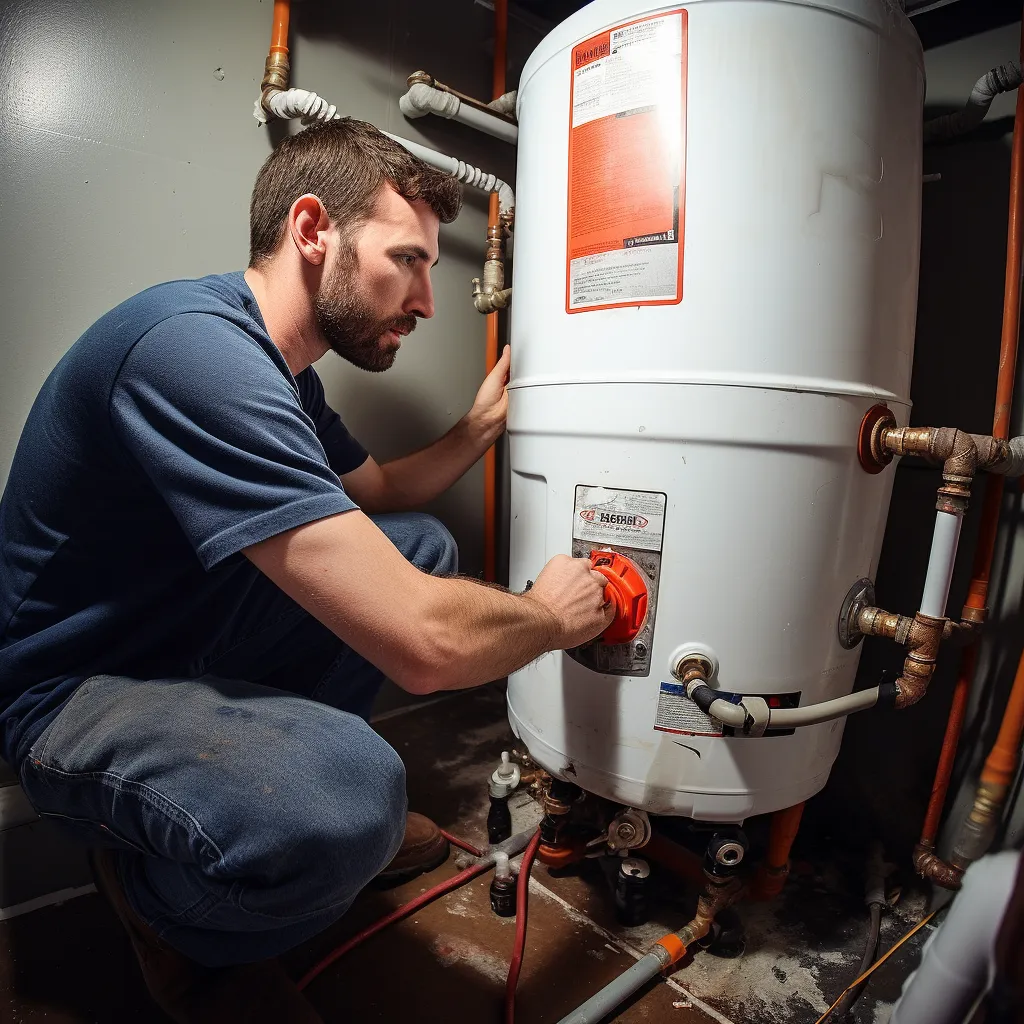
Compare prices from various retailers and plumbing companies to find the best deal for your new water heater.
Inquire with your local utility company to see if they offer any rebates or tax credits for installing energy-efficient water heaters
Despite the higher upfront cost, investing in an energy-efficient water heater is a wise decision.
Look beyond the upfront price and consider the long-term cost of owning a water heater.
If you're on a tight budget, purchasing a used water heater might be an option.
Hiring a professional ensures that the job is done correctly and minimizes the risk of costly mistakes.
What to Do When You Need Water Heater Replacement Services
If you're facing a failing water heater and need a replacement, it can be overwhelming to know where to start. The best course of action is to engage a licensed water heater professional. They possess the expertise and experience required for the job. Consider the following tips when selecting a professional for your water heater replacement:
Visit the company's website or platforms like Yelp and Facebook to read customer reviews.
Ensure that the plumber you choose specializes in water heater replacement.
Before hiring a plumber, confirm that they possess a valid license and carry the necessary insurance coverage.
To secure the most favorable price, request quotes from at least three different companies.
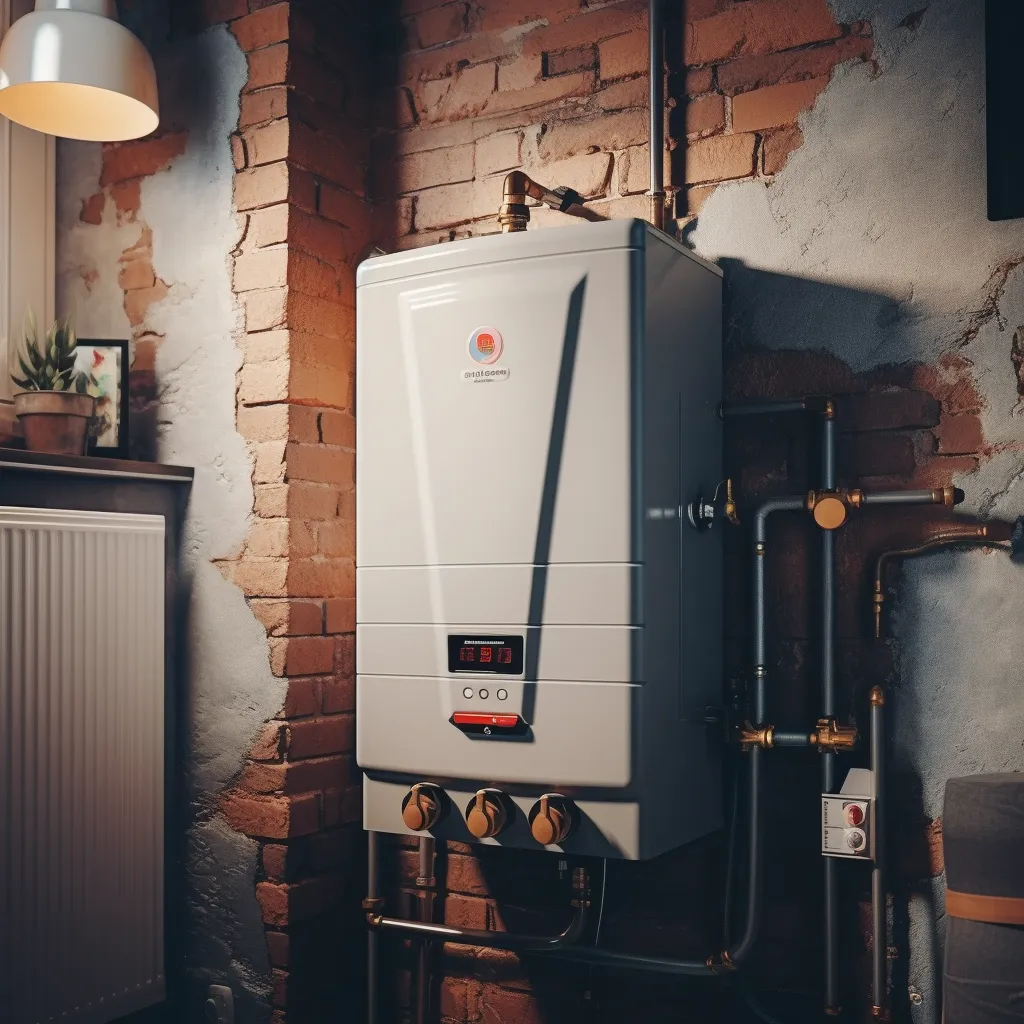
A reliable professional will be able to:
We can help you with your water heater needs. Our services include:
We will inspect your water heater to determine if it requires repair or replacement.
We offer detailed cost estimates that cover labor, materials, and any applicable taxes. This will give you a clear understanding of the expenses involved in your water heater project..
Our team will assist you in selecting the best water heater for your specific requirements. We consider factors such as size, efficiency, and price to help you make an informed decision.
From removing the old water heater to setting up the new one, our skilled technicians will handle every step efficiently and professionally.
Our services come with warranty coverage to provide you with peace of mind.
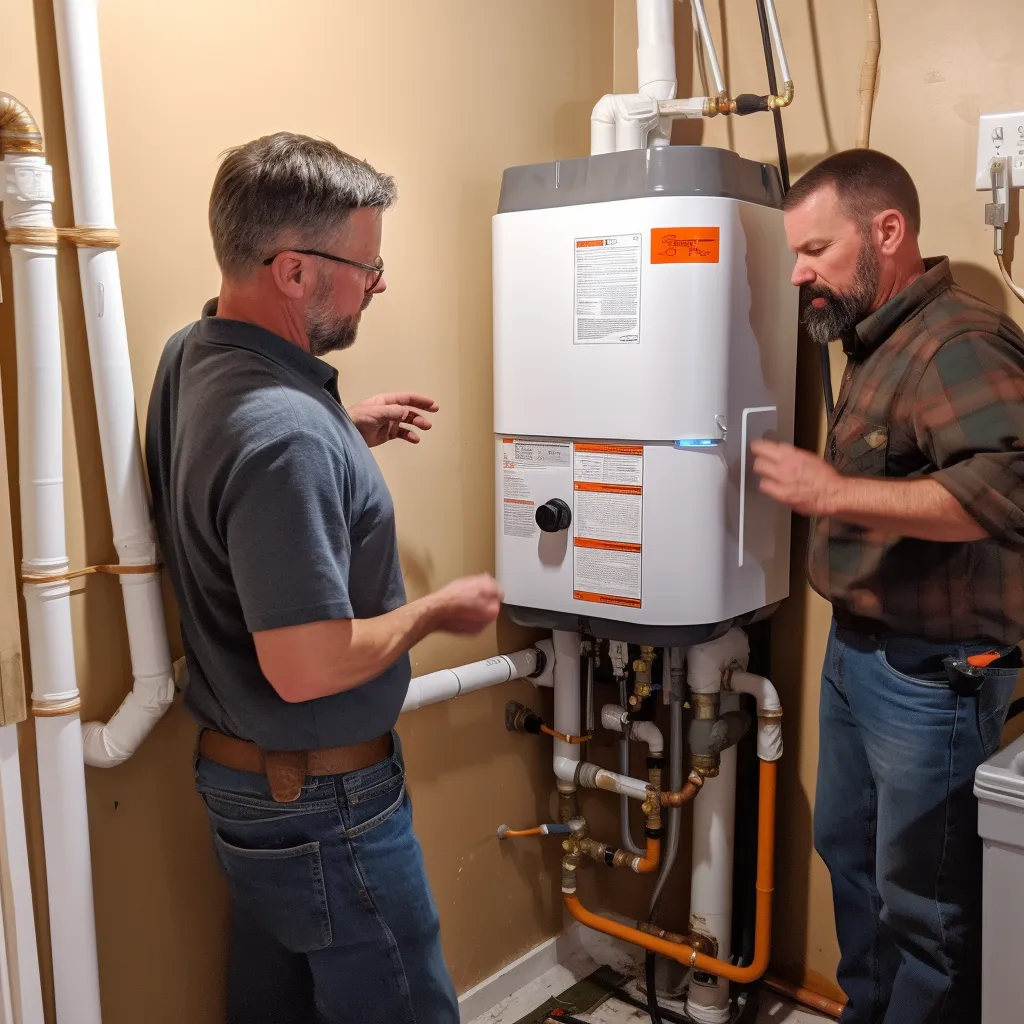
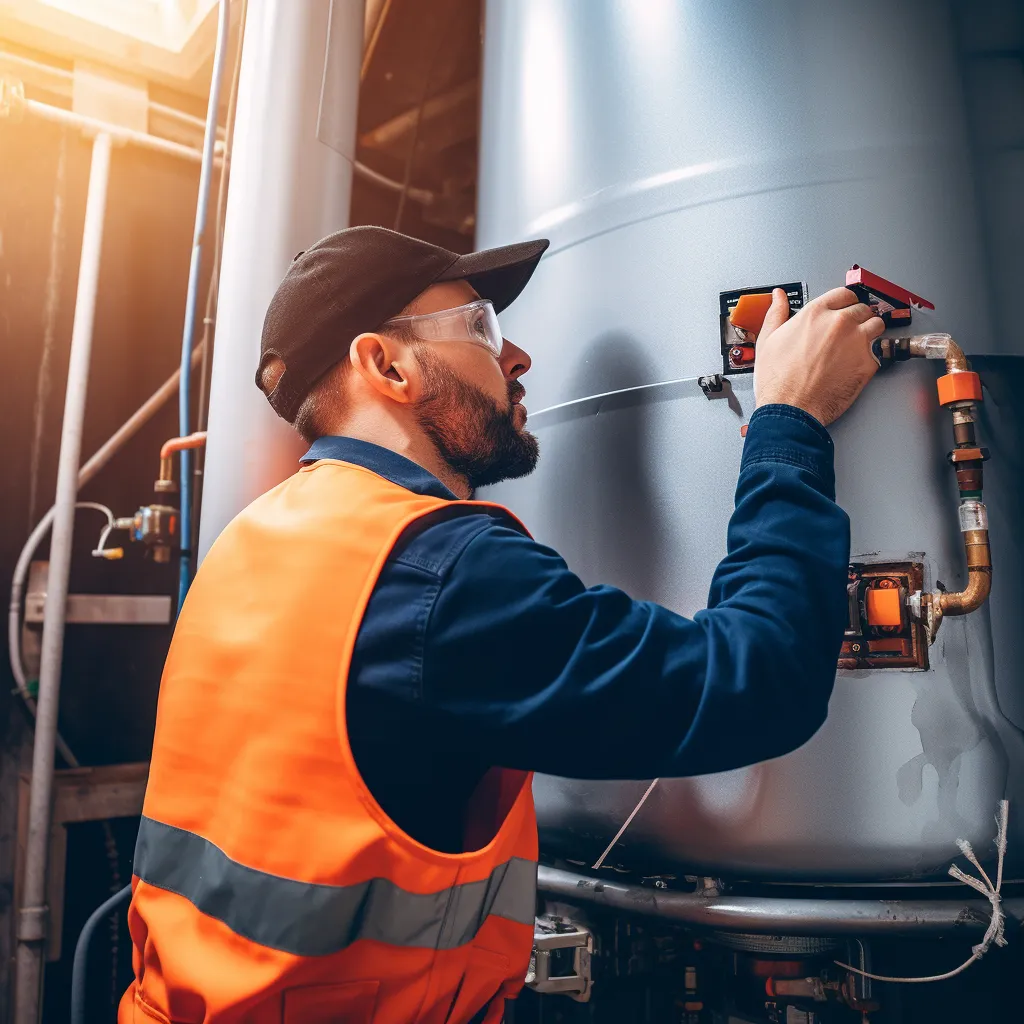
Water heaters don't last forever
Determining when to replace or maintain your water heater is essential, as its lifespan typically ranges from 6 to 12 years, depending on usage and efficiency. Several factors influence the cost of obtaining a new water heater, including the type and size of the unit, installation and maintenance fees, and potential savings from rebates, incentives, or extended warranties when opting for an energy-efficient model. To make the best choice, conduct thorough research and compare different types of water heater models. If you're uncertain, seeking assistance from a licensed professional can provide valuable guidance and potentially save you time and money in the long term.
Ready to Solve Your Plumbing Needs?
For reliable, expert plumbing services tailored to the needs of Malden and its neighboring cities, look no further than Water Heater Genies. We’re here for you 24/7, ensuring that your plumbing is always in top condition.
Call us today to schedule your service!
Business Hours: Monday - Sunday, 24 Hours
Phone Number: (781) 679-1733
Location: Malden, MA serving all surrounding areas.
Trust your local experts at Water Heater Genies for professional, timely, and efficient plumbing solutions.
GET IN FULL TOUCH
PHONE: (781) 679-1733
EMAIL:
marcus@waterheatermalden.com
Water Heater Genies
Malden, MA 01248
